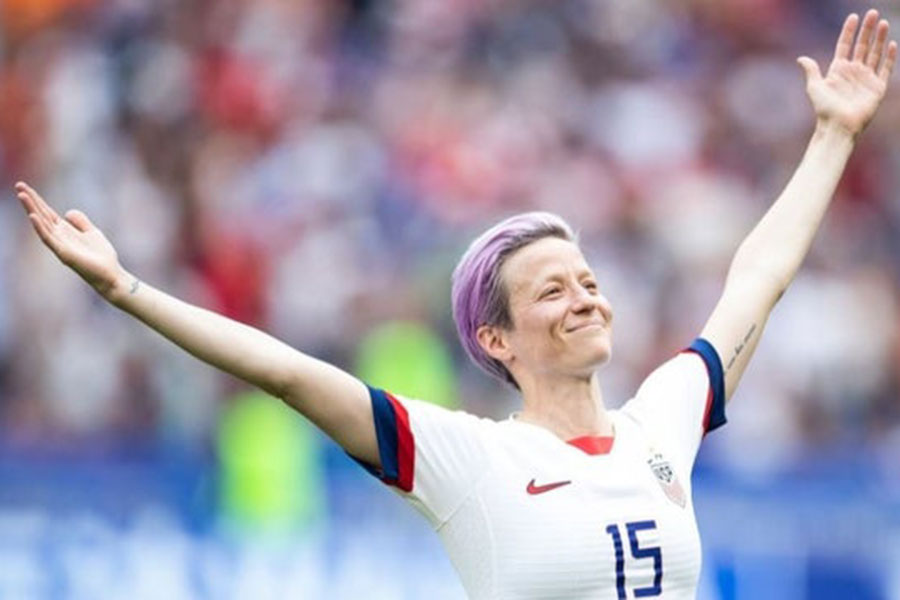This week, soccer superstar and lesbian Megan Rapinoe won Sports Illustrated’s sportsperson of the year. The co-captain of the U.S. Women’s National Soccer Team helped lead the cohort to victory in the World Cup held in France.
Rapinoe is vocal about her politics, which brought a lot of media attention this year, particularly when she said, “I’m not going to the f–king White House.” Trump responded with varying levels of disrespect, challenging Rapinoe to win, which she did. And, while winning, she also questioned pay inequality between men’s and women’s soccer in the U.S. Rapinoe has publicly supported Colin Kaepernick and continues to address racism in sports (and society). She won Sports Illustrated’s award for her spectacular World Cup performance, but also because of her fearlessness in a trying time.
Cyclist and trans woman Rachel McKinnon last week wrote a New York Times op-ed detailing her experience since setting the masters women’s world record for the 200-meter time trial in her age bracket. McKinnon has received death threats that include transphobic commentary from those who claim she cheated. Though she hasn’t produced testosterone in seven years and every athlete has physical advantages, she said, bigotry makes her a target. She needs about four people to monitor her social media to mitigate transphobic comments, which she says is one of the many challenges she faces being public-facing and transgender. She wrote, “Trans women are women. We are female. And we are not taking over.” McKinnon is also an associate professor of philosophy at the College of Charleston.
Women’s sports have always played a role in politics — think Billie Jean King, Renée Richards, Layshia Clarendon and Brittney Griner — largely due to inequalities in sports based on gender, but also because women’s sports is home (as is every sect of society) to a vibrant LGBTQ community. And we know how politically invested this community is.
In addition to LGBTQ women athletes taking stands, the sports world seems to be experiencing some shifts toward inclusivity. LGBTQ athletes like Jason Collins, Adam Rippon, Chris Mosier, Billy Bean, Tom Daley and others have come out and told their stories. Over the last few years, Nike has supported Kaepernick and shown support for Black, Brown and LGBTQ communities. Pittsburgh Penguins goalkeeper Matt Murray is auctioning equipment he wore to benefit the Delta Foundation of Pittsburgh. Philadelphia teams including the Flyers, Sixers and Phillies all host “pride nights” and have LGBTQ initiatives. Former NBA star player Dwayne Wade — along with his wife Gabrielle Union — is a trans and LGBTQ activist.
While the world of sports has a long way to go in its support across the board for LGBTQ folks, Sports Illustrated’s support of Rapinoe in her athletic achievements and political statements is a step forward. Hopeful, too, is McKinnon’s op-ed, wherein she can say, “The Union Cycliste Internationale, USACycling, Cycling Canada, the Canadian and United States governments and the state of South Carolina all agree that I’m female.”
